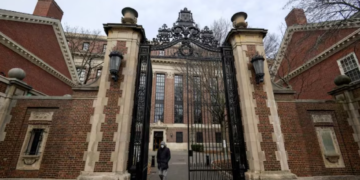Dec 18, 2024 Story by: Editor
Law enforcement plays a vital role in community safety, yet Black autistic youth face a disproportionately high risk of negative encounters during police interactions. Researchers at the Center for Autism Research at Children’s Hospital of Philadelphia (CHOP) sought to better understand these dynamics by examining the perceptions and concerns of Black caregivers of Black autistic children. Published in the journal Autism, their findings propose critical improvements to enhance the quality of these interactions.
Autistic individuals already face a heightened risk of adverse outcomes during police encounters, including injury or death. This risk increases for Black autistic youth due to the higher frequency of police contact and documented use of force against the Black community compared to other racial groups. Despite these challenges, Black parents and caregivers are often excluded from research shaping police training or initiatives aimed at improving autistic individuals’ skills for interacting with law enforcement.
“By making these families the focus of our study, we want them to know that their voices are being heard, and that what they tell us provides important next steps for implementing meaningful change,” said Ashlee Yates Flanagan, PhD, lead author and research psychologist at the Center for Autism Research.
Key Findings and Themes
The study analyzed the perspectives of 43 Black caregivers of Black autistic children, focusing on the intersection of race and autism in policing experiences. Researchers ensured diverse representation by involving individuals from underrepresented backgrounds and addressing racial dynamics in American policing.
Four key themes emerged from the study:
- Concerns Over Police Training: Parents expressed doubts about the adequacy of police officers’ training in recognizing and responding to autistic behaviors.
- Misinterpretation of Autistic Behaviors: Caregivers worried that typical autistic behaviors, such as reduced eye contact, could be misread as suspicious or guilty actions.
- Threat of Harm or Death: Families highlighted fears of fatal police responses to misunderstood behaviors.
- Hope for Better Policing: Despite concerns, many caregivers expressed optimism that targeted training could improve outcomes.
“It’s important for everyone to understand that the parents in this study said they were hopeful, which we interpreted as Black caregivers’ faith that interactions between officers and Black autistic youth could be better,” Yates Flanagan noted. “This demonstrates that there’s space for improvement in training.”
The Importance of Inclusion
The study underscores the critical need to involve racially and ethnically diverse voices in research on policing. Historically, Black families have been hesitant to participate in such studies due to a lack of representation and prioritization of their lived experiences.
“In this study, we captured rich narratives from stakeholders who have not been represented well in prior research, but whose thoughts and perspectives are critical for understanding how to improve outcomes for Black autistic youth and police,” said Julia Parish-Morris, PhD, senior study author, scientist at the Center for Autism Research, and associate professor at the Perelman School of Medicine at the University of Pennsylvania.
Recommendations for Future Police Training
The findings advocate for culturally responsive police training tailored to address Black caregivers’ concerns. Enhanced training efforts should help officers better understand and respond to the unique behaviors of autistic individuals, reducing the likelihood of harmful encounters.
“Families in the study worried that police officers might overreact to movements and responses typical of autistic youth but different from their peers,” the study noted. “Targeted training could help police recognize these differences, improving interactions and fostering patience and understanding.”
Funding and Acknowledgments
This research was supported by the NIH (R42MH115539-S1 and P50HD105354), the Intellectual and Developmental Disabilities Research Center (IDDRC) at CHOP/Penn, and the McMorris Family Foundation. Image Source: News Medical

















